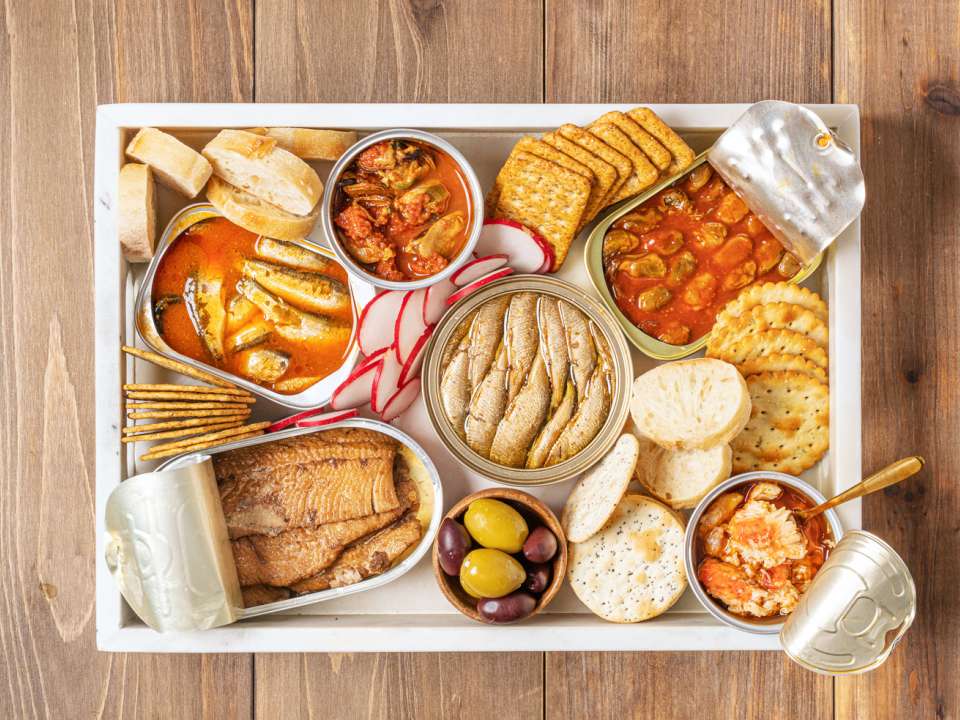
As if you needed another reason to feel guilty about your weak spot for bacon, new research is pointing towards ultra-processed foods — like chips, soda and lunch meats — as a culprit for higher risk of cognitive decline.
Here’s what you need to know about how your meals and snacks might be affecting your brain.
What’s going on with processed foods and dementia risk?
Ultra-processed foods are the kinds of packaged and fast food that use industrial processes and ingredients you don’t know how to pronounce. Think chicken nuggets, instant noodles and candy bars. A growing body of research has shown a correlation between consuming a lot of ultra-processed foods in your diet and having faster rates of cognitive decline and higher risk for dementia.
One of these studies followed nearly 11,000 people in Brazil without cognitive issues, ages 35 to 74, over eight years. They found people who ate a large amount ultra-processed food in their diets experienced a 28% faster rate of cognitive decline compared with people who ate very little of it.
It’s important to point out that researchers have not yet found a direct connection between eating processed foods and getting dementia later in life — you’re not automatically going to get Alzheimer’s if you enjoy an ice cream bar every now and then.
“It’s many things that are conspiring in our current lifestyle, diet included, that are contributing to the rise of Alzheimer's,” says Dr. Christopher Damman, a gastroenterologist at the Digestive Health Center at UW Medical Center – Montlake and an associate professor of gastroenterology and medicine in the UW School of Medicine. “Sleep, managing stress and exercise are all really important, too.”
Why ultra-processed foods are bad for your brain
While the factors that increase your risk for cognitive decline are complicated, there are some likely reasons for why ultra-processed foods seem to be so unhealthy for our brains.
Ultra-processed foods contain too much salt, fat, sugar and additives
What’s so bad about ultra-processed food? Too many calories, salt, sugar, fat and additives — the ingredients that make you crave these foods so much. They’re not inherently bad for you, it’s just that in ultra-processed foods they exist at extremely high concentrations.
Diets high in salt, sugar and fats increase your risk of developing fatty deposits in your arteries, called atherosclerotic plaques, that lead to heart attacks and stroke. It’s also highly associated with Alzheimer’s. Most of the time, Alzheimer’s is caused by a combination of plaque from proteins called amyloids and buildup from neurofibrillary tangles, as well as small vessel disease in the brain. These changes ultimately result in cognitive decline.
Research also suggests that eating a lot of ultra-processed foods can deliver damaging compounds that can cause inflammation in the gut microbiome, which can affect brain health and cause neurological issues.
Ultra-processed foods lack important nutrients
Ultra-processed foods are also missing important ingredients that you get when you eat whole or fermented foods.
“We haven't traditionally thought of these factors as important because they're not conventional nutrients like fat, carbohydrates, protein, vitamins or minerals,” says Damman. “They're non-nutritive components in food, like fiber and phytochemicals.”
Phytochemicals are compounds found in plants and fruits, like antioxidants and flavonoids, that have anti-inflammatory properties. They have been shown in animal studies to have a significant impact on Alzheimer’s. If the body is not getting enough of these compounds, it can cause the brain’s immune system to become overactive. This includes the overactivity of cells called microglia, which help remove damaged cells, debris and microbes from the brain. When they are overactive, it can impair the brain’s ability to remove the buildup of junk in the brain, which can lead to the accumulation of amyloid beta, the protein associated with Alzheimer’s disease.
What are the best foods to improve brain health?
So if you’re trying to make changes to your diet to decrease your risk for cognitive decline, it’s not just about eliminating bad foods but also making sure you’re getting enough good ones.
“You need more of the things that are removed from ultra-processed foods, like fiber and phytonutrients and good fats, and you need less of the things that are concentrated,” says Damman. “And when you do that, you end up eating whole foods.”
If it’s helpful to have specific guidelines, the MIND diet is a good option. It combines parts of the Mediterranean and DASH diets that promote brain health, including leafy greens, whole grains, nuts, berries, olive oil, fish and poultry.
“The Mediterranean and MIND diets have been found to reduce the risk of dementia later on in life,” says Dr. Michael Rosenbloom, a neurologist at the Memory and Brain Wellness Center at Harborview Medical Center.
Another way to approach it, according to Damman, is increasing the amount of food in your diet that is high in “the four Fs”:
- Fiber, including whole grains, lentils, beans, fruits and greens
- Phytochemicals from foods like berries, grapes, red peppers and purple cabbage
- Healthy fats, which are found in olive oil, nuts, avocado and fish
- Ferments, like pickles, sauerkraut and yogurt
Also moderate the amount of ultra-processed foods in your diet, things like:
- Lunch meats
- Hot dogs and sausage
- Fried foods
- Soda
- Chips
- Sweets, like cookies, cakes and donuts
Of course, eating a diet high in whole foods, lean protein, and good fats isn’t just good for your brain but your overall health, too. You might not be able to overhaul your pantry overnight, but little changes can go a long way.

 Healthy ideas for your inbox
Healthy ideas for your inbox





